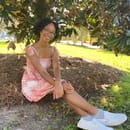Many children find comfort and escapism in their classroom libraries. From story time to independent reading, it wouldn’t be hard to believe that most children’s love for reading begins in the classroom. However, the contents of these libraries have found themselves at the center of a hot debate— one that mirrors our struggles to cope with an ever-diversifying society.
You might be thinking: “When did Mother Goose Tales get controversial?” But those aren’t necessarily the books under contention. Our society has opened up to allow a plethora of muted voices to be heard in the literary space. Queer, Black and minority authors are more vocal than ever within literature, fostering a new generation of writing that takes their experiences into account. Melissa (previously named George), for example, is a short novel written by Alex Gino that follows the story of a young transgender girl that navigates and copes with living in a world where everyone views her as her assigned gender at birth. Similarly, The Bluest Eye by Toni Morrison, winner of the National Book Critics Circle award, tells the story of a young Black girl coping with discrimination during the Great Depression. Both books are accessible to young people in terms of reading level, exposing them to themes of racism and sexuality, which is where the controversy begins.
Parents and educators have raised concerns about this new generation of literature exposing children to graphic themes that they argue are not appropriate for children. They also accuse librarians and schools of purposely marketing these books to children to push progressive ideologies onto them. Both Melissa and The Bluest Eye are highly contested books, with Melissa being “the no. 1 most banned, challenged, and restricted book in the U.S.” despite its Children’s Choice Book Award according to the Edgewood College Library. People who argue against these books assert that protecting childhood innocence includes protecting from themes in books that may be too difficult for children to understand, such as racism and sexuality. Butler University cited “racial issues” and “encouragement of damaging lifestyles” as the first two reasons why books are challenged in America, with other issues like “blasphemous dialog” and “sexual situations” being grounds for controversy as well.
Those who support these progressive books assert that although these themes may be heavy for children, they are presented in ways that are appropriate for them. In addition, most of the books that are highly contested in schools are written by queer and Black authors, raising questions as to whether book bans are an extension of the cultural clashes so prevalent in America today. Indeed, when NBC News reported why Texas parents want Melissa removed from libraries, the only justification given was “its portrayal of a transgender child,” indicating that the book’s depictions of queer experiences clash with the values of the parents challenging its presence in libraries.
As this debate gains traction, particularly with schools in the south, educators are being given the very difficult task of standardizing “appropriate” children’s content, and whether that content will include minority voices. There is no telling where this debate will go in the courts, but these conflicting ideas will dominate decisions regarding this issue as it progresses.
Want to see more HCFSU? Be sure to like us on Facebook and follow us on Instagram, Twitter, TikTok, YouTube and Pinterest!


